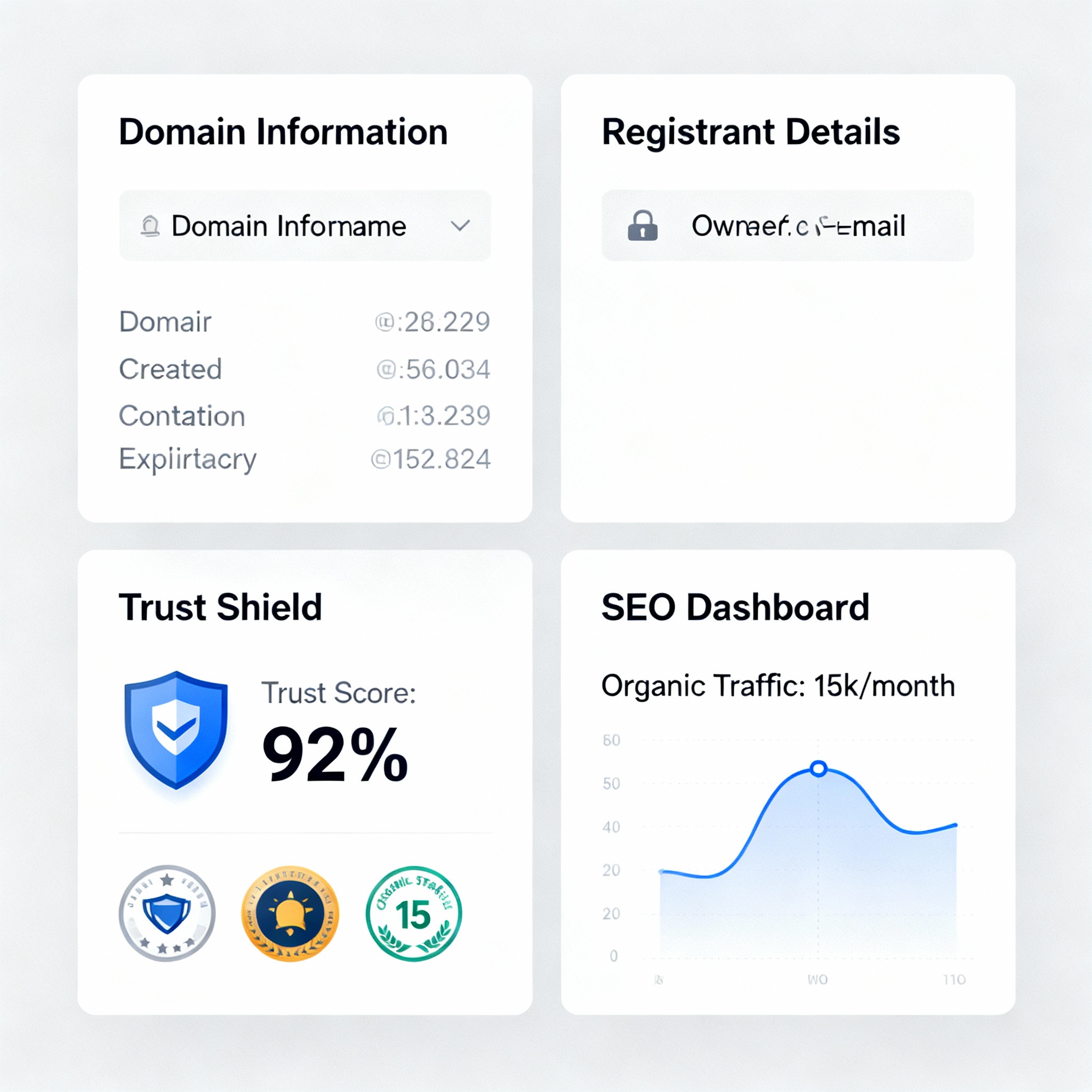
Whois Lookup
Created on 19 October, 2025 • Checker tools • 80 views • 2 minutes read
Whois Lookup is a foundational tool for internet transparency, cybersecurity, and SEO optimization
Whois Lookup is a foundational tool for internet transparency, cybersecurity, and SEO optimization. It enables users to access vital information about domain ownership, history, contact details, and administrative status. By revealing who owns a particular domain, its registration history, expiration date, and related DNS data, Whois Lookup plays a crucial role for businesses, digital marketers, SEO strategists, and anyone invested in the web ecosystem.
What is Whois Lookup?
How Whois Lookup Works
Whois Lookup queries a global database of domain registrations, returning key details such as:
- Domain owner’s name, organization, and contact information
- Registrar and nameserver details
- Domain creation, update, and expiration dates
- DNS configuration and status
- Historical ownership records for investigative or security purposes
This data can be accessed freely through official and third-party lookup tools including ICANN, domain registrars, and security platforms.
SEO and Business Benefits of Whois Lookup
Why Whois Lookup Matters
Protecting Brand and Reputation
- Brand Monitoring: Monitor domain registrations similar to your own to prevent brand squatting or impersonation. Whois data allows early detection and remediation, protecting intellectual property and maintaining domain authority.
- Domain Age and Trustworthiness: Older, reputable domains often rank better due to Google’s trust in domain longevity and stability. Whois Lookup accurately confirms domain age, helping SEO professionals evaluate potential collaboration and backlink value.
- Trust Signals: Publicly available Whois info can signal legitimacy and transparency, positively influencing domain trust and user confidence.
Network and Link Analysis
- Link Building and Outreach: Identify site owners for outreach, link exchange, or business partnerships. Getting direct contact leads to higher quality links and collaboration opportunities.
- Network Discovery: Expose link networks, private blog networks (PBNs), or suspicious activity by checking if multiple domains share the same Whois details. This protects your site from SEO penalties and helps avoid spammy associations.
Security and Compliance
- Cybersecurity Investigations: Track the source of phishing, spam, or malicious domains. Historical Whois data is invaluable for cybersecurity teams and digital forensics, aiding in the identification and blocking of harmful entities.
- Legal Evidence: Supports dispute resolution and regulatory compliance by providing proof of ownership at a specific point in time.
Domain Acquisition and Management
- Purchase and Negotiation: Investigate if a domain is available, track down the owner, or verify listed data before a transaction. Whois Lookup streamlines domain acquisition and protects against fraud.
- Expiration and Renewal Alerts: Whois helps domain owners and investors monitor upcoming renewals, reducing the risk of losing valuable domains.
SEO Best Practices and Considerations
- Keep Whois Data Consistent with contact details on your website to reinforce site credibility and trust.
- Consider Whois Privacy Services to protect personal info, though some public data is often required by law.
- Analyze Competitors: Use Whois to study competitor web assets and backlink networks, supporting smarter campaign planning.
- Avoid Spammy Networks: Search engines may penalize networks of domains with identical Whois data if detected as unnatural link schemes.
Conclusion
Whois Lookup powers smarter SEO, business security, and digital risk management strategies. By unlocking domain transparency, it supports branding, legal protection, outreach, and higher search confidence—making it a cornerstone of successful online operations.
Popular posts
-
GIF to BMPImage Manipulation tools • 583 views
-
GIF to WEBPImage Manipulation tools • 462 views
-
GIF-to-PNGImage Manipulation tools • 363 views
-
SHA-3/512 generatorConverter tools • 292 views
-
GIF to JPGImage Manipulation tools • 257 views